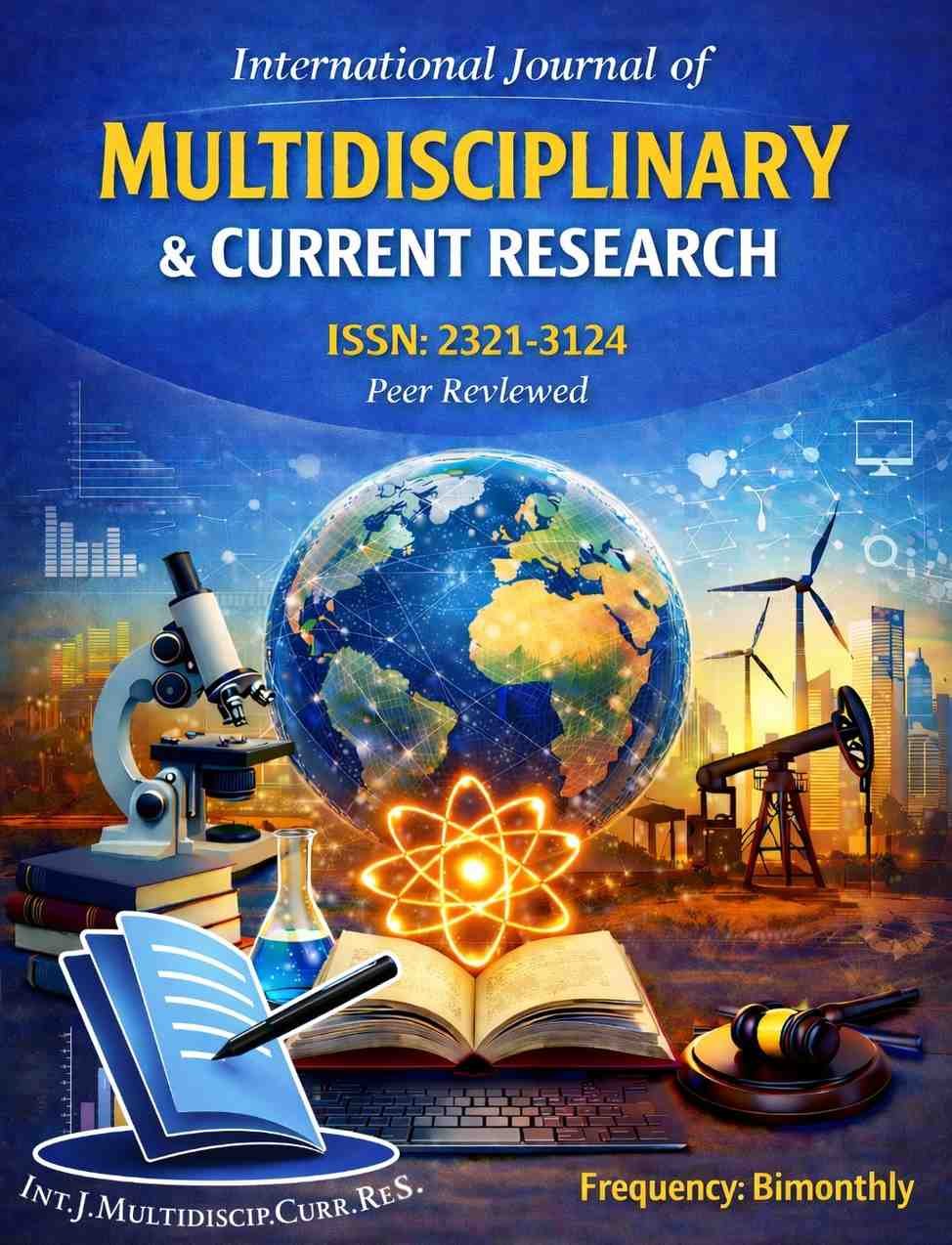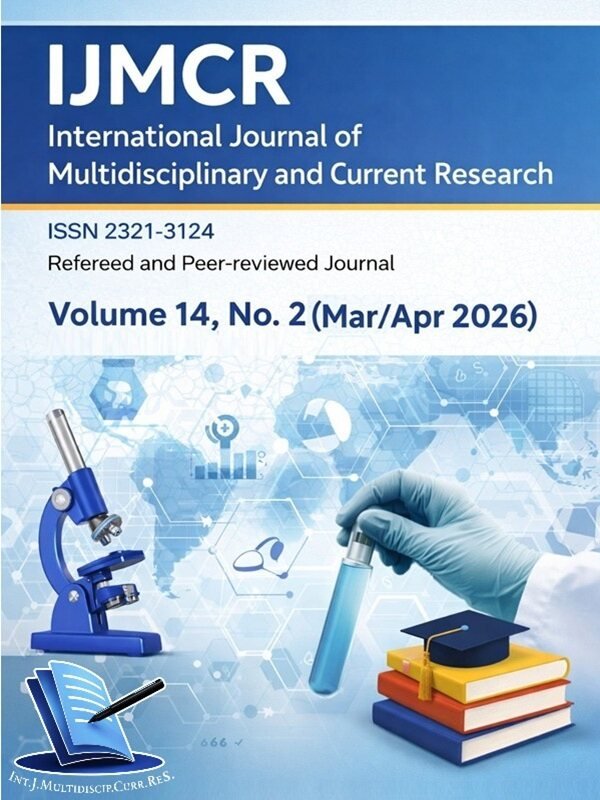
About the Journal
◼ Open Access: Immediate, free access to all published content.
◼ Repository Policy: Authors may deposit articles in repositories and personal websites.
◼ Licensing: Articles are published under CC BY-NC-SA 4.0. Authors retain copyright.
◼ Plagiarism Policy: Zero tolerance; all submissions are screened using iThenticate or equivalent tools.
◼ AI Policy: Use of AI tools must be transparently disclosed.
◼ Digital Archiving: Long-term preservation via services such as Portico or CLOCKSS.
◼ Advertising Policy: Only ethical, academic-relevant advertisements are accepted.
◼ Ahead of Print: Accepted articles are published online with DOI before issue assignment
Current Issue

Volume 14, No. 2 of the International Journal of Multidisciplinary and Current Research (IJMCR), published in 2026, represents a vibrant collection of peer-reviewed, open-access scholarly articles. As an ISSN 2321-3124 refereed journal, it promotes cutting-edge research across diverse fields including science, engineering, social sciences, management, technology, and applied studies. This issue features innovative contributions on topics such as efficient urban mobility enhanced by AI traffic solutions, alongside other multidisciplinary advancements reflecting contemporary global challenges and technological progress. Emphasizing high-quality, original research, Vol. 14 No. 2 fosters interdisciplinary dialogue, enabling researchers, academics, and practitioners to share impactful insights that drive knowledge forward in an ever-evolving world.
Most Cited Articles
◼ Morphometric analysis of a drainage basin using geographical information system: a case study ⮺
◼ An overview: Metacognition in education ⮺
◼ Efficiency of accounting information system and performance measures ⮺
◼ Determinants of the climate change adaptation in rural farming in Nepal Himalaya ⮺
◼ An overview of service models of cloud computing ⮺
◼ Impact of CSR on Customer Loyalty: Putting Customer Trust, Customer Identification, Customer Satisfaction and Customer Commitment into Equation-A study on the Banking Sector of Pakistan ⮺
◼ Process parameters for green synthesis of silver nanoparticles using leaves extract of Aloe vera plant ⮺
◼ Optimization of Process Parameters by Taguchi Method: Catalytic degradation of polypropylene to liquid fuel ⮺
◼ Analysis of stress management among professionals in the Nigerian construction industry ⮺
◼ Evolution of mobile communication network: From 1G to 4G ⮺

